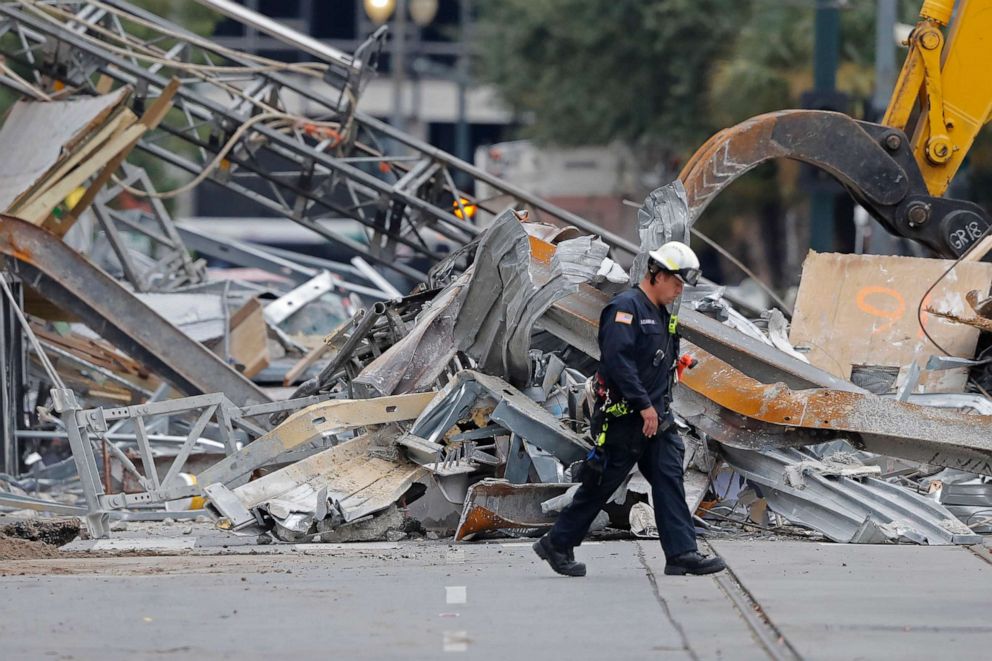New Orleans will use explosives to bring down cranes at Hard Rock Hotel that collapsed
Demolition experts will use small explosives to bring down the two cranes still standing at the site of the partially collapsed Hard Rock Hotel collapse in New Orleans, authorities said.
The controlled demolition is expected to happen around noon Saturday, New Orleans Fire Department chief Timothy McConnell said at a press conference Friday.
The cranes have been a source of major concern, he said. Both have continuously swayed since the under-construction building's collapse on Oct. 12, which left three dead and dozens injured.
"They are not designed to do that," McConnell said at a press conference Thursday.

Workers will use small explosives, known as energetic materials, to bring the cranes down. The goal is that they will come down in the same place as they are standing.
"Think of it like melting," McConnell said.
There is a "very, very high probability" that the cranes will come down as planned, according to McConnell, but there is always a risk.
"Something like this is not a science. It's not something you can practice," he said.
Authorities said if the cranes can come down earlier, they will but the approaching tropical storm and high winds are preventing them from moving as quickly as they'd like.
The controlled demolition was expected to happen Friday, but authorities said the plan was pushed back to Saturday.

Authorities are not only working through the dangers of the building, but also hoping to recover two bodies that are still inside.
One man was confirmed dead, while the other has not been located yet but is presumed dead, according to the mayor's office.
Officials have not yet said what caused the collapse. Ten of the victims injured filed a lawsuit Friday against five companies involved in the construction, citing negligence.
Surrounding buildings have been evacuated ahead of the demolition.
Authorities will divert their attention to the rest of the building once the cranes are successfully brought down.
ABC News' Darren Reynolds contributed to this report.




